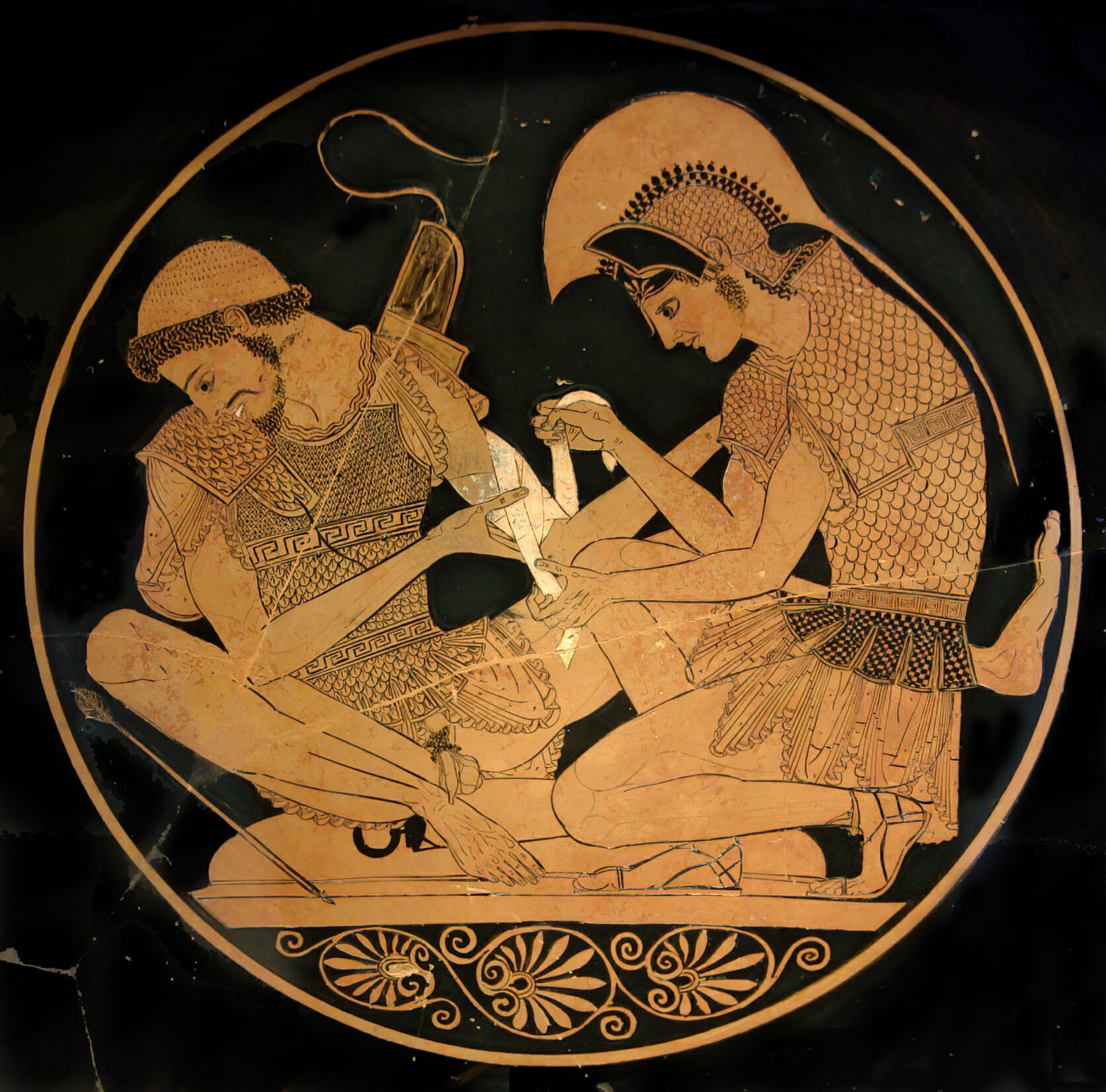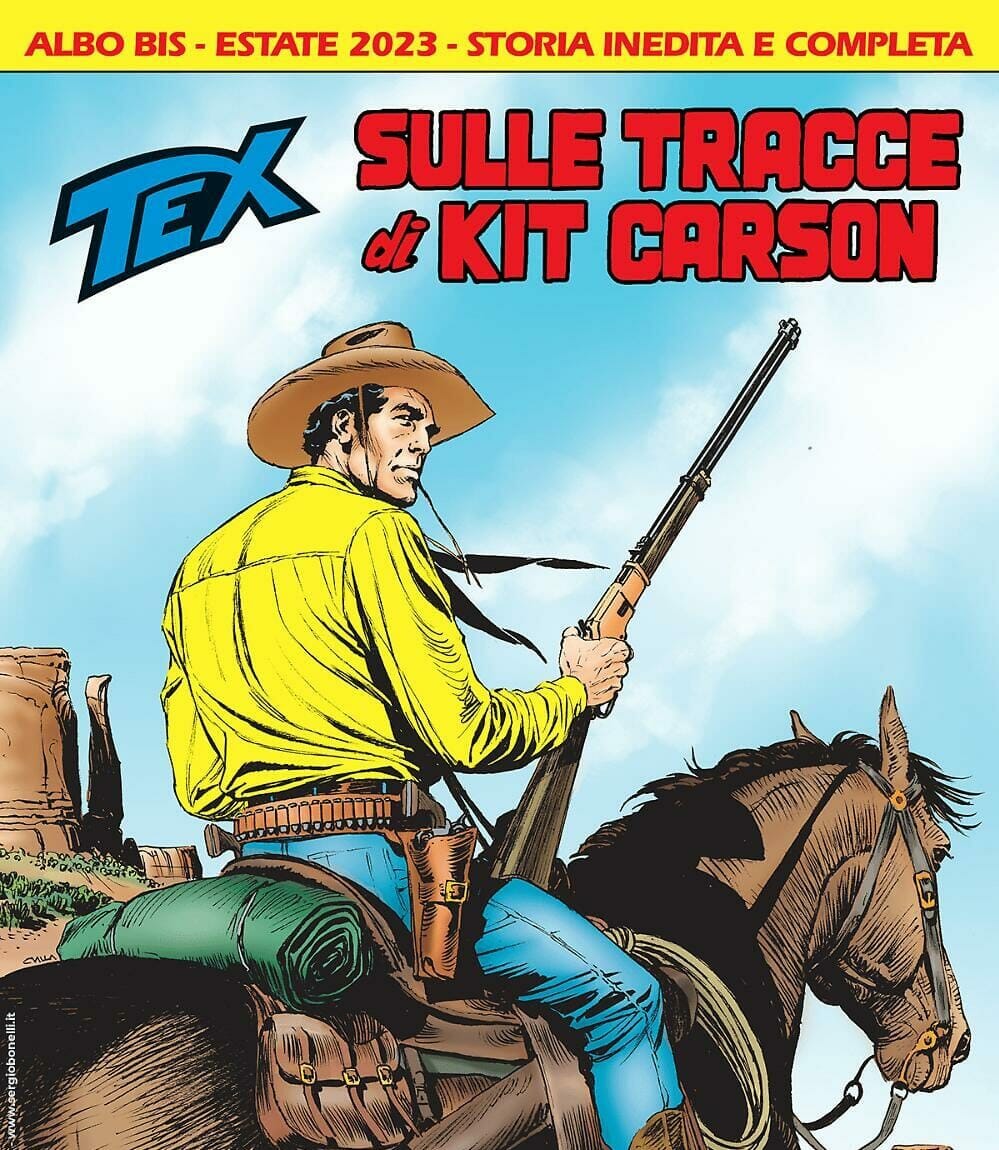
Tex | Wild West's and Italy's man of the people
Year
Format
Genre
By
The Wild West and the stories of cowboys, rangers, and outlaws are evergreen (just think of one of the most successful video games of recent times, Red Dead Redemption II). However, the birth and development of the Western genre dates back a long time ago, since the mid-1800s in literature. This trend then moved also to the cinema, with a short movie, The Great Train Robbery, filmed in 1903. Westerns went through their golden age during the 20th century, especially in Hollywood and also in Italy with the 60s and 70s phenomenon of the Spaghetti Western.
However, there is also another famous media tied to the Western in Italy, and it is comics, especially thanks to the comic series Tex. It was born in 1948 as a non-flagship project of the Edizioni Audace publishing house (later transformed into the current Sergio Bonelli Editore). Written by Gianluigi Bonelli and illustrated by Aurelio “Galep” Galeppini, its authors take full advantage of the serial novel and the stories of Native Americans and cowboys that were being produced in the USA at that time. Tex, however, reworked them in his own way.
Occhio Cupo and the Wild West
When creating Tex, its two authors were grappling with another main comic of the swashbuckling genre: Occhio Cupo. Galeppini, the illustrator, destined all the hours of the day for the creation of Occhio Cupo. Only at night, Galeppini devoted himself to Tex. He notoriously put less effort into it, leaving the lines coarser and the backgrounds less defined, as it was a second-rate project.
Occhio Cupo, however, failed, as readers seemed to turn all their attention to Tex. Into the character of the rebel ranger, therefore, converged various characteristics already belonging to Occhio Cupo, especially in his way of dressing. His original name should have been Tex Killer, but to avoid attracting too much censorship attention, Bonelli replaced the K of the surname with a W.
Bonelli was not new to stories related to the Wild West, with its vast literary and cinematic iconography. Vast and untouched natural expanses. Saloons and whiskeys. Horses and guns. Cowboy hats. Although Tex is the protagonist, it almost seems like the real main character is the Wild West. A place so far from the Italian imagination but so dreamed of. The Wild West pushes Tex in one direction or another, and anyone can only bend to his will. Nature joins civilization; the law joins crime, the progress joins the “savage”, for better or for worse.
Even the Wild West, however, expands and shrinks at the will of the authors. It is invaded by characters and events that really existed but were radically modified and adapted so that Tex could be the hero and not a mere spectator. Here then, the reader still gets to know the criminal Dalton brothers, the Apache chief Cochise, Buffalo Bill, and many others.
Tex as a new kind of consciousness
Tex lives his thousand adventures busying himself among Native Americans, pards, and criminals, transforming himself from outlaw to ranger and vice versa more than once, based on what the Wild West requires. The American frontier, after all, is a symbol of freedom, chaos, and self-determination.
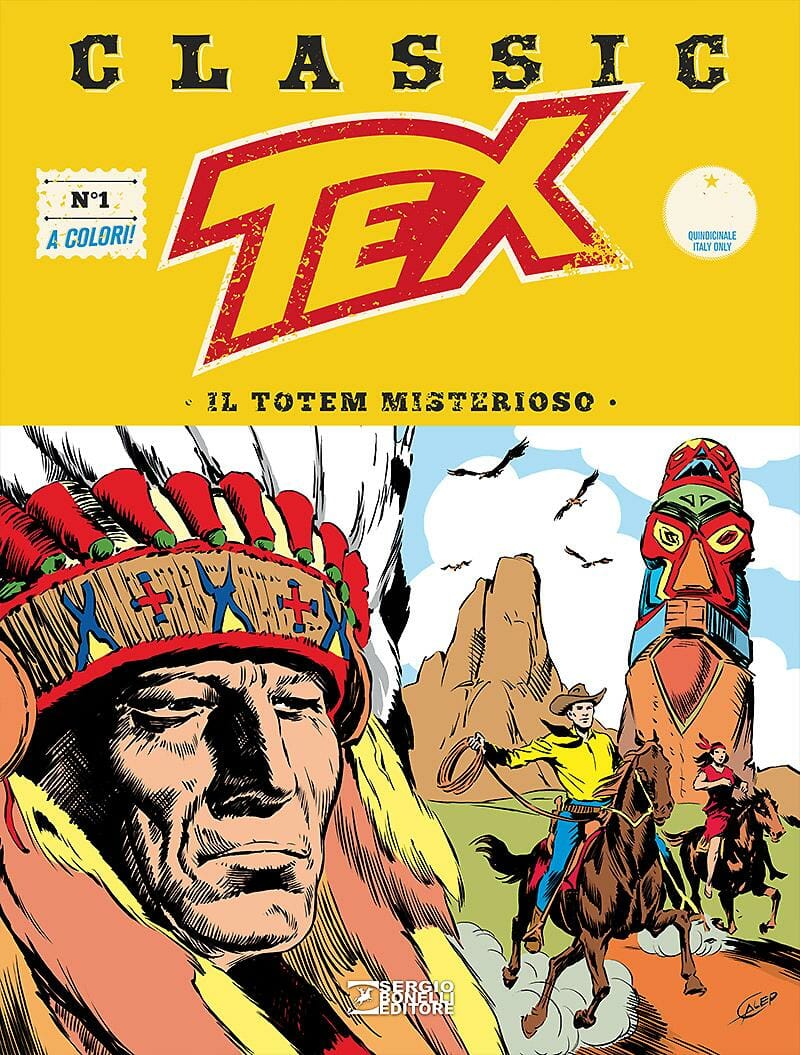
Tex operates according to its own specific moral code. He is a defender of the law, but he does not let it blind him, as perhaps Javert from Les Misérables by Victor Hugo might do. Therefore, Tex sides with the Native Americans or the Americans, depending on the situation. At most, he will make it up by offering whiskey to all the patrons of the saloon after the umpteenth fistfight.
The first publication of Tex takes place in 1948, a few years after the end of World War II after Italy had been under a Fascist government for years and after the Nazi occupation. After having followed a fascist government, Tex clearly puts on the table of Italian readers a new philosophy of political life of action: against abuses of power, one must act. The law is not always fair; when it is not, we must rebel.
Tex as a new kind of ethics
Tex was published in a particular format: 32 pages of a booklet made up of individual strips. Easy to carry and to hide in a pocket if necessary. Just a few months earlier, Italy became a Republic after a popular vote. It was time to leave the past behind and look to the future. There was a need for a new model to aspire to, one that at the same time would not upset the masses, who were emerging from a period of intense far-right ideology.
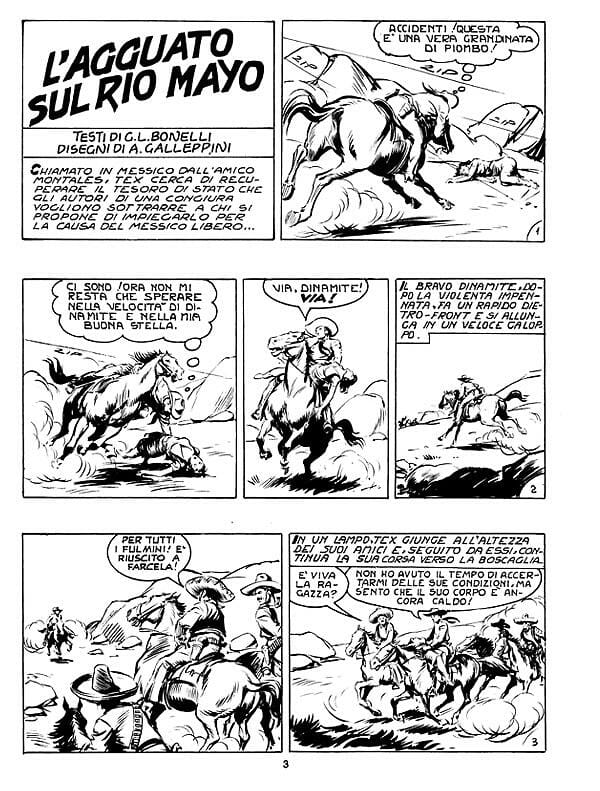
Entrusting Tex with this task is an exaggerated hyperbole, but, at the same time, its creation fits into a cultural context in which comics itself contributed to the development of new ethics. In the meantime, other models were being born in Italy, especially with cinema and the new current of Neorealism, in which the post-war period was told with crude explicitness. Movies such as Rome, Open City, or Bicycle Thieves brought Italy and its population’s problems to the fore. In this period, Tex acted as a relief valve compared to Neorealism, which often showed inevitably suffering realities, and the protagonists themselves, in the end, continued to experience the tragedy of postwar reality.
As Elizabeth Leak, professor of Italian Studies at Columbia University and author of the book Tex Willer. Un cowboy nell’Italia del dopoguerra (Tex Willer. A cowboy in postwar Italy) says:
I’m especially interested in the period right after the war. This is such an important period in Italy, a period of great delicacy in terms of transitions. It’s a period of amnesty, a period of reconciliation and a period of reconstruction; not just infrastructural, but also legislative and emotional, and one of the arguments in this book is that Tex offers a model for a kind of evasion that allows Italians to rest for a moment from this very arduous labor of reconstruction that they’re undertaking.
Elizabeth Leak interwied by LaVoceDiNewYork
In his heroism and forward-looking attitude, Tex even anticipated the historical revisionism of the Americans, who still saw the Native Americans as the enemy.
Don’t make the mistake of thinking that all Indians are cruel, just wanting to pull their hair up. They are men like us and their difference lies in the color of their skin. There are good Indians and there are, of course, bad Indians as well. But if you treat them as your equals, and not as savages, you will never regret it.
Tex
What kind of hero is Tex?
Anyway, most of all, Tex is a somewhat outdated kind of hero. He married Lilith and later lost her, had a child, and has friends, but he doesn’t really need any of them, even if he loves them. Tex is a world of its own; he doesn’t let his emotions influence him. Tex is a rational man with a rigid code of honor, a loner – but not a hermit – who shuns too personal involvements in the name of his highest goals. This is why his relationships with the people who should be closest to him are peculiar. Even toward one of his closest friends, Kit Carson, Tex seems quite detached and distant.
Among the pages of the comics, the readers also find another Kit, the son he had with his Native American wife Lilith. Kit and Tex have a discontinuous relationship, as Tex, after his wife’s death, leaves his son with the Natives and gets back to his adventures. Only when the boy grows up do father and son reunite to live adventures together.
Since the ranger is a widower, readers could have expected to find him entertaining with other women, but Tex remains faithful to his lost love. When there is the possibility of becoming attached to another woman, Tex leaves her behind without many explanations. Sexuality, in Tex, is minimal in all its forms, almost non-existent, as if letting oneself go to love and libido could be a weakness for the character.
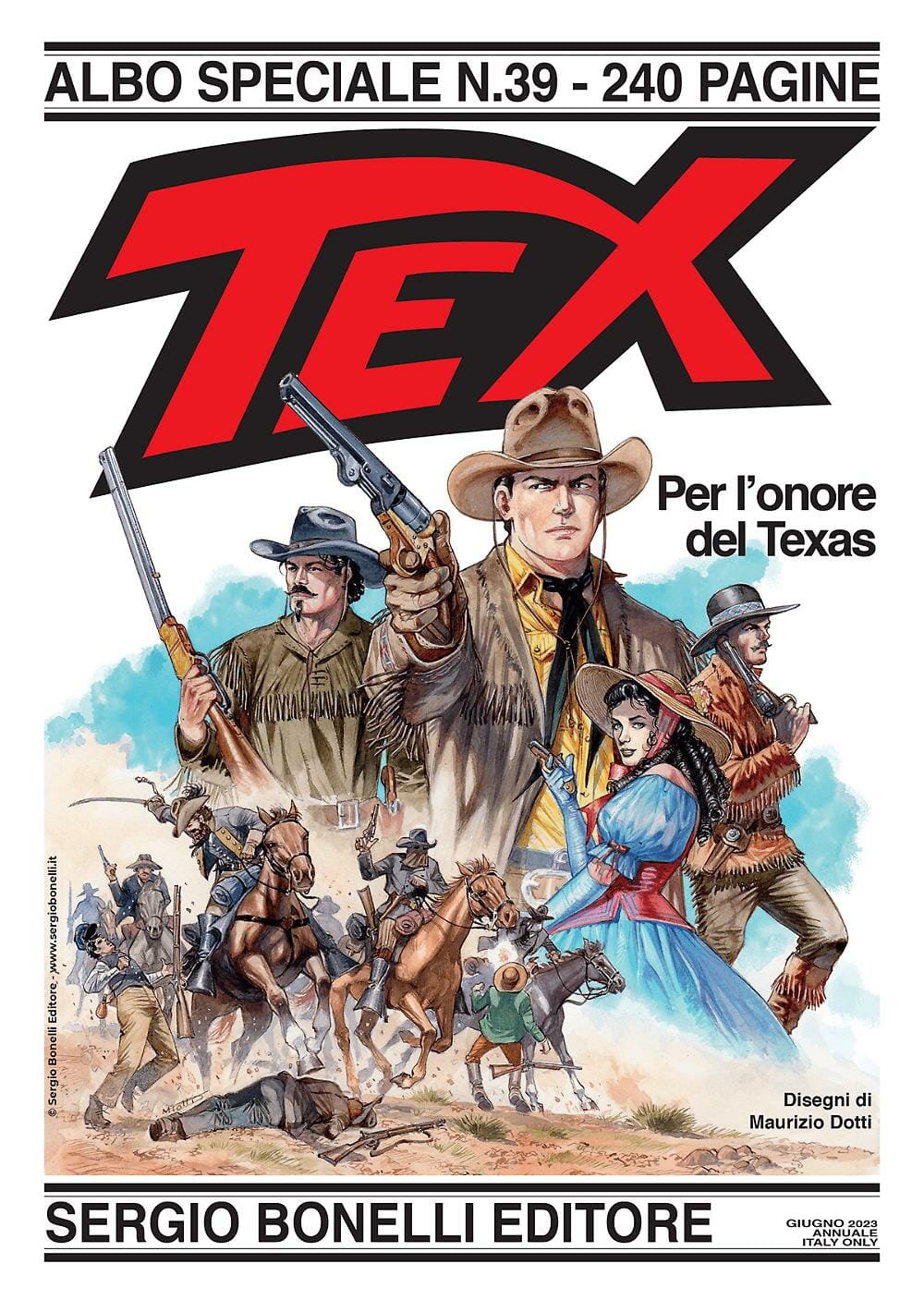
Tex is not the type of man who is in touch with his deepest self, as it could be in a much more modern Western movie like The Power of the Dog. But within these traits lies also its strength. Just like the heroes of the Epic Stories studied at school, he is infallible and overcomes any conflict (in the absence of fatal errors), just like Homer‘s Odyssey‘s Ulysses or Iliad‘s Achilles and Hector.
Tex today
It has now been 75 years since the creation of Tex. And something has changed over time. If in 1948 Tex was born with certain characteristics due to the historical period in which he was created, now the character is also endowed with more nuances, a bit to make him more human according to a modern standard, without distorting it and denying its editorial past. Today, he is more open to irony, mistakes, doubts, and traits that give him a more elaborate view of the eternal struggle between good and evil.
Since 2018, Sergio Bonelli Editore has started publishing a new comic series, Tex Willer, which tells the character’s origins, his youth, and the period in which he was more inclined to make mistakes. He is now a more human character with whom one can identify more easily. However, Tex’s ideology is still standing today, as he was born as a leader, a defender of the people regardless of ethnicity, and a protector of the most defenseless against corruption: a hero people will always need.










